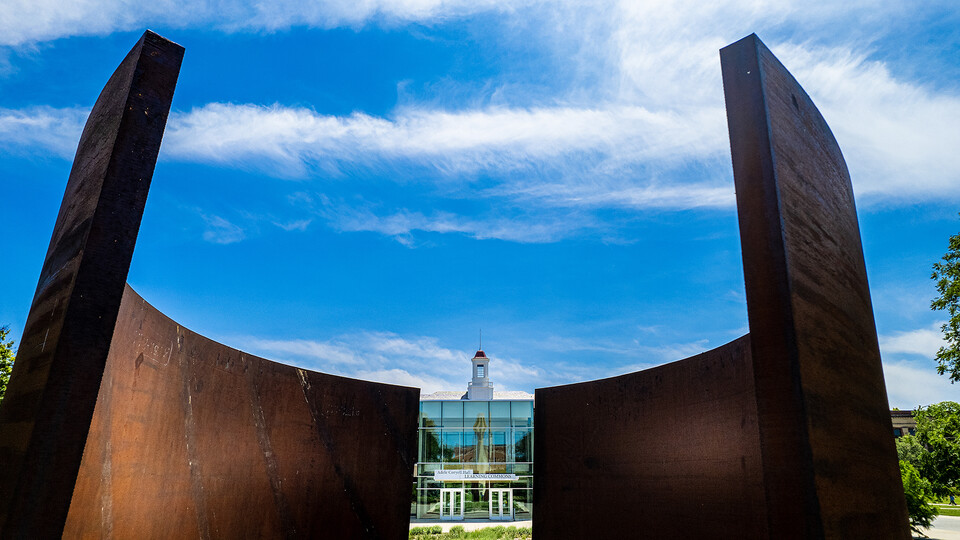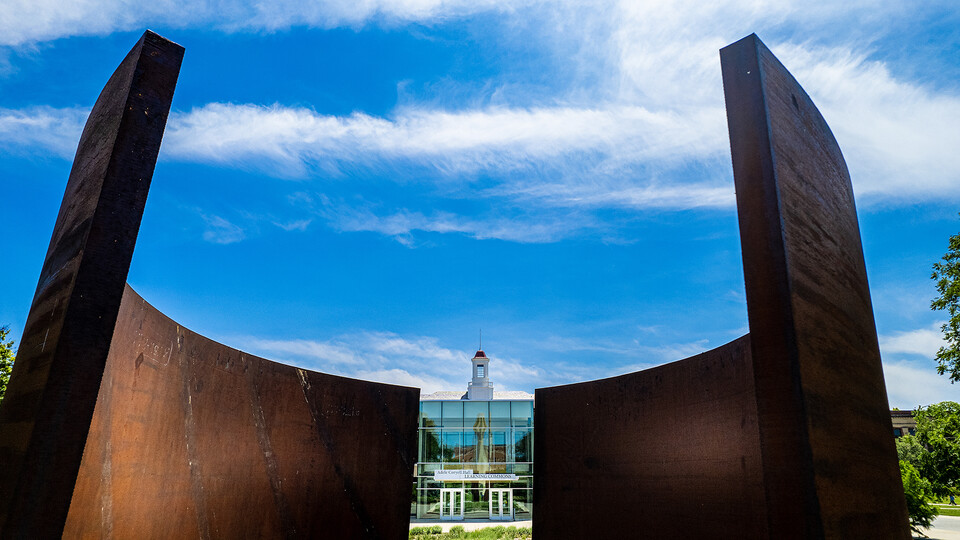
Kevin Smith, Olson Professor and chair of political science, was interviewed for a Nov. 7 USA Today article on the United States looking for normalcy under Joe Biden.
A review of “The Securitarian Personality” by John Hibbing, political science, appeared Nov. 2 in the Los Angeles Review of Books.
Hibbing was also interviewed for a Nov. 15 Australian Broadcasting Corporation story on what’s next for Trump supporters after his failed re-election bid.
Research by Hibbing and Kevin Smith, also political science, and Rice University’s John Alford, professor of political science, was featured in a Nov. 3 opinion piece by the Sandusky (Ohio) Register’s Tom Jackson. The researchers propose that the differences between liberals and conservatives are rooted in personality characteristics and biological predispositions.
A 2019 study co-authored by Smith and Hibbing, along with Matthew Hibbing of the University of California, Merced, was highlighted in a Nov. 6 USA Today article and picked up by more than a dozen media outlets. The study suggests that Americans are making themselves sick over politics.
The study was also cited in a Nov. 17 Upworthy story on strategies for having constructive political discussions.
• • •
Robert Schub, political science, and colleagues from Rice University and Harvard University have published a new study showing that the thought of female soldiers dying in combat does not diminish public support for war. Stories on the research appeared in Phys.org, Stars and Stripes and a few other media outlets.
• • •
Chigozie Obioma, English, an internationally recognized author, participated in the virtual 2020 Seoul International Writers’ Festival in early November, the Korea JoongAng Daily reported.
Obioma has also been commissioned to produce content for the new digital storytelling platform Alexander. A Business Wire article on the platform was picked up by more than 60 media outlets. A similar story appeared in Marie Claire.
Obioma’s debut novel, “The Fishermen,” was highlighted in a Nov. 27 book column in The Atlantic titled “How to tell the story of a family.” “Obioma revisits the classic Bible story about feuding brothers Cain and Abel, setting it in 1990s Nigeria,” the column reads. “He blurs the line between fact and fable to tell a morally complex story about four brothers, a dreadful prophecy and fratricide.”
• • •
Philip Schwadel, sociology, and Brandi Woodell of Old Dominion University co-authored a recent study showing that those who report same-sex attraction are almost twice as likely to disaffiliate from their religion. The Religion News Service published a Nov. 6 article on the research. The Christian Century and Church Leaders picked up the story.
• • •
Bedross Der Matossian, history, is among more than 50 scholars of Armenian descent who recently signed an open letter calling on global institutions to help protect cultural sites in the vulnerable region of Artsakh. A GlobeNewswire article featuring the letter appeared in 100-plus media outlets.
Der Matossian will serve as the editor of the new I.B. Tauris series “Armenians in the Modern and Early Modern World.” The series was highlighted in a Nov. 19 guest column in The Armenian Weekly.
Der Matossian has also been re-elected president of the Society for Armenian Studies. Aravot and the Massis Post published articles on the society’s new officers.
• • •
Margaret Jacobs, history, and Elizabeth Lorang, University Libraries, are leading a new project to examine the history of the Genoa Indian School. The project is a collaboration between the university; Genoa U.S. Indian School Foundation; community advisers from the Omaha, Pawnee, Ponca, Santee Sioux and Winnebago tribes of Nebraska; and descendants of those who attended the school. Stories on the project have appeared in NET News, the Norfolk Daily News, North Platte Telegraph and The Circle News.
• • •
Even though the COVID-19 pandemic has slowed much academic research across the nation, the university’s Extreme Light Laboratory is among facilities that are continuing to press forward. Stories on the facility have appeared in KFXL, KHGI, KNEB, KPTM and Technology.org. Donald Umstadter, physics and astronomy, director of the laboratory, was featured in the stories.
• • •
Edward Schmidt, professor emeritus of astronomy, was featured in the article “The weirdest objects in the universe” in the December issue of Air and Space magazine. He recently identified 21 dipper stars, or stars whose light flickers irregularly.
• • •
The New York Times published a Nov. 24 review of William G. Thomas III’s new book, “A Question of Freedom: The Families Who Challenged Slavery from the Nation’s Founding to the Civil War.”
“It’s a rich, roiling history that Thomas recounts with eloquence and skill,” the review reads.
Thomas, history, also discussed his new book in a Nov. 30 virtual book talk for the National Archives.
• • •
A 2017 study by sociologists Kristen Olson and Christina Falci of Nebraska and Megumi Watanabe of Hiroshima University was cited in a Nov. 24 FiveThirtyEight article on social alienation among some Trump voters as a possible explanation for why polls underestimated him again in 2020.
• • •
A new study by researchers from the University of Nebraska–Lincoln and University of Texas at Austin provides more evidence that the stress of racism contributes to health problems among people of color. The research was highlighted in a Nov. 25 DiverseInc article.
• • •
A 2014 study by Kathy Krone, communication studies, and Stacy Tye-Williams of Iowa State University was cited in a Nov. 29 Psychology Today article on building brain resilience. The researchers collected narratives from 48 workplace bullying victims and found that more than half reported being bullied by their manager or boss, while others were targeted by a co-worker.


